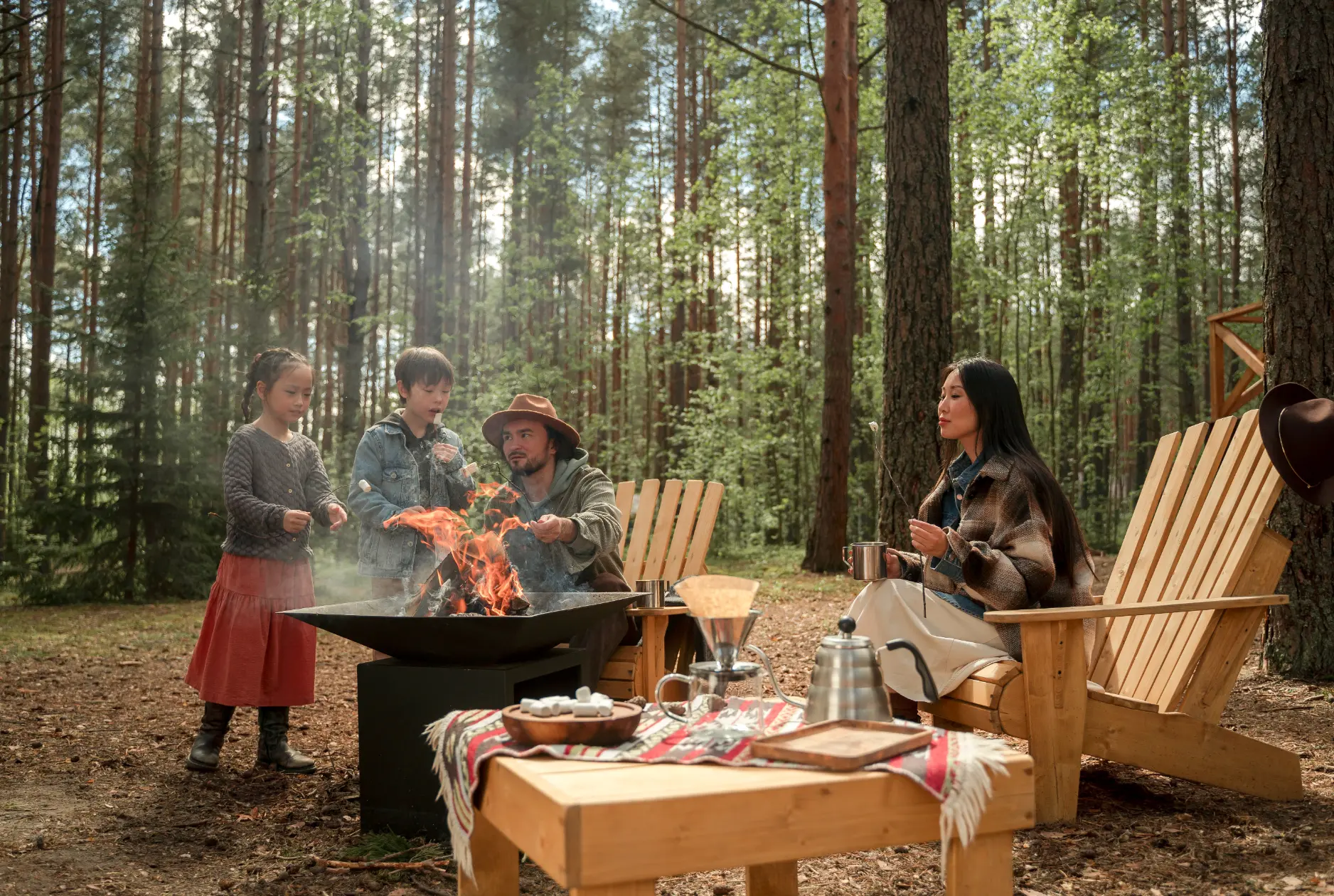Best Fishing Tips for Beginners In 2024

Fishing tips for beginners: Learn the basics and choose the right gear to increase your chances of success on the water. Fishing is a popular and enjoyable pastime for many, but it can be overwhelming for beginners.
Table of Contents
Whether you’re planning to fish in freshwater or saltwater, understanding some key tips and techniques can help you get started on the right foot.
We’ll provide some essential tips for beginners to improve their fishing skills. From selecting the right fishing gear to understanding different fishing techniques, we’ve got you covered.
So grab your fishing rod and let’s dive into the world of fishing!
Introduction To Fishing Tips for Beginners
New to fishing? Get started with these essential fishing tips for beginners. Learn how to choose the right gear, find the best fishing spots, and improve your casting technique.
Fishing is not just a hobby but a way of life for many enthusiasts. Whether you are looking to enjoy a peaceful day by the water or hoping to catch your next big trophy fish, fishing can be a rewarding and exciting experience.
However, if you are new to the world of fishing, it can seem daunting and overwhelming at first. Understanding the basics of fishing and choosing the right fishing gear are essential steps to ensure a successful and enjoyable fishing trip.
In this article, we will explore the fundamentals of fishing and provide helpful tips for beginners.
Understanding The Basics Of Fishing
Fishing involves more than simply casting a line into the water and waiting for a bite. It requires a basic understanding of fish behavior, different types of fishing techniques, and the importance of location.
By familiarizing yourself with these fundamentals, you can increase your chances of a successful catch and make your time on the water more enjoyable.
- Learn about different species of fish commonly found in your area and their preferred habitats.
- Understand the feeding patterns of fish, such as the best time of day to fish and the types of bait that attract them.
- Research different fishing techniques, such as bait casting, fly fishing, or trolling, and determine which one suits your preferences.
- Practice casting and reeling techniques to improve your accuracy and control.
- Pay attention to weather conditions and how they may affect fish behavior.

Choosing The Right Fishing Gear
Having the right fishing gear is crucial for a successful fishing trip.
The type of gear you choose will depend on the fishing technique you prefer and the species of fish you are targeting. Consider the following factors when selecting your fishing gear:
- Choose an appropriate fishing rod and reel that matches the fishing technique and the size of fish you intend to catch.
- Invest in high-quality fishing line and understand the different types and strengths available.
- Select the proper hooks, weights, and lures for your target species.
- Consider additional accessories like a tackle box, fishing net, and polarized sunglasses for added convenience and comfort.
Remember, fishing is not just about the gear but also about the experience. Don’t forget to pack essential items such as sunscreen, a hat, snacks, and plenty of water.
Now that you have a basic understanding of fishing and the right gear, you are ready to embark on your fishing journey. Whether it’s a local fishing spot or an adventurous deep-sea excursion, always approach fishing with patience, respect for nature, and a sense of adventure.
Techniques And Strategies For Successful Fishing
Fishing is not just about dropping a line in the water and waiting for a bite. To be a successful angler, you need to understand the techniques and strategies that can increase your chances of catching fish.
In this section, we will explore three key aspects to consider: selecting the ideal fishing spot, mastering different fishing techniques, and understanding fish behavior.
Selecting The Ideal Fishing Spot
When it comes to fishing, location is everything. Choosing the right fishing spot can make a world of difference in your success rate. Here are some factors to consider when scouting for the perfect fishing spot:
- Water conditions: Look for clear water with a moderate current, as fish are more active in these conditions.
- Structures: Fish are often attracted to structures like rocks, fallen trees, and vegetation. These provide shelter and serve as feeding grounds.
- Depth: Different fish species have specific depth preferences. Understanding their habitat preferences will help you target the right areas.
- Temperature: Fish are sensitive to water temperature. They tend to gather in areas where the temperature is optimum for their survival.
Mastering Different Fishing Techniques
Having a wide range of fishing techniques in your arsenal will increase your chances of catching fish in various conditions. Here are a few common fishing techniques to master:
- Bait fishing: This involves using live or artificial bait to attract fish. It’s a versatile technique suitable for various fish species and water conditions.
- Fly fishing: Popular among anglers who enjoy the art of casting, fly fishing uses artificial flies made from feathers, fur, and other materials.
- Trolling: This technique involves dragging bait or lures behind a moving boat to cover a larger area and entice fish to strike.
- Jigging: Jigging involves repeatedly lifting and dropping a lure vertically to mimic the erratic movements of injured prey, attracting predatory fish.
Understanding Fish Behavior
Knowing how fish behave can significantly improve your fishing success. Here are a few key behaviors to understand:
| Behavior | Description |
|---|---|
| Feeding patterns | Some fish are more active during specific times of the day, while others feed actively throughout the day. |
| Spawning behavior | Understanding when and where fish spawn can help you target the right areas during their reproductive periods. |
| Habitat preferences | Fish have specific habitat preferences, choosing areas with the right temperature, depth, and cover. |
| Reactive behavior | Fish may exhibit different responses to bait or lures based on their mood, weather conditions, and surrounding environment. |
By considering these key aspects, you’ll be well on your way to becoming a successful angler. So pack your gear, find the perfect fishing spot, master different techniques, and understand fish behavior to increase your chances of reeling in the big catch!
Tips For Landing Big Catches
When it comes to fishing, the thrill of landing a big catch can be incredibly rewarding and exciting. But reeling in that trophy-sized fish requires some skill and strategy.
In this section, we will explore two essential aspects of landing big catches: using the right bait and lures, and properly playing and reeling in fish.
Additionally, we will discuss the importance of ensuring proper fish handling to preserve the health of the fish you catch.
Using The Right Bait And Lures
The choice of bait and lures can make a significant difference in attracting and hooking big fish. To increase your chances of success, consider the following tips:
- Research the type of fish you want to catch and find out what bait is most effective for that species. Different fish have different preferences.
- Utilize live bait when possible, as it is more enticing to predatory fish. However, if live bait is not available, high-quality artificial lures can also be effective.
- Experiment with different bait colors and sizes to see what the fish are responding to. Pay attention to the local conditions and adjust accordingly.
- Take into account the weather conditions and water temperature. Fish tend to be more active in certain conditions, so select your bait and lures accordingly.
Properly Playing And Reeling In Fish
Once you’ve hooked a big fish, the next step is to skillfully play and reel it in. Here are some tips to help you navigate this crucial stage of landing big catches:
- Always keep a steady pressure on the fish while reeling it in. Don’t yank or jerk on the line, as this can cause the hook to dislodge.
- Reel in the fish in a smooth and controlled manner. Avoid rapid movements that could potentially break the line or tire out the fish too quickly.
- Use your rod to manipulate the fish’s movements. By gently guiding the fish, you can tire it out and bring it closer to your position.
- Be patient and take your time. Landing a big fish requires patience and persistence. Rushing the process may result in losing the catch.
Ensuring Proper Fish Handling
Responsible fish handling is essential to ensure the well-being and survival of the fish you catch. Follow these guidelines:
- Wet your hands before handling the fish. This helps protect their delicate skin and reduces the risk of removing their protective slime layer.
- Avoid touching the fish’s gills or eyes, as they are sensitive areas. Hold the fish gently but firmly, supporting its weight.
- Minimize the time the fish spends out of the water. If you need to take photos, hold your breath and take them quickly, then release the fish promptly.
- If you plan to keep the fish, ensure you are following local regulations regarding size limits and bag limits. Respect catch and release practices whenever possible.
By using the right bait and lures, playing and reeling in fish properly, and ensuring responsible fish handling, you can increase your chances of landing that coveted big catch.
Remember to always prioritize the well-being of the fish and the preservation of our natural resources.
Conclusion
To sum up, these fishing tips for beginners are designed to help you get started on the right foot. Remember to choose the right gear, familiarize yourself with the local fishing regulations, and practice patience.
By learning basic casting techniques and understanding the behavior of fish, you can enhance your chances of success.
Take the time to plan your fishing trips and always prioritize safety. With these tips in mind, you’ll be well-prepared to embark on your fishing journey. Happy angling!





